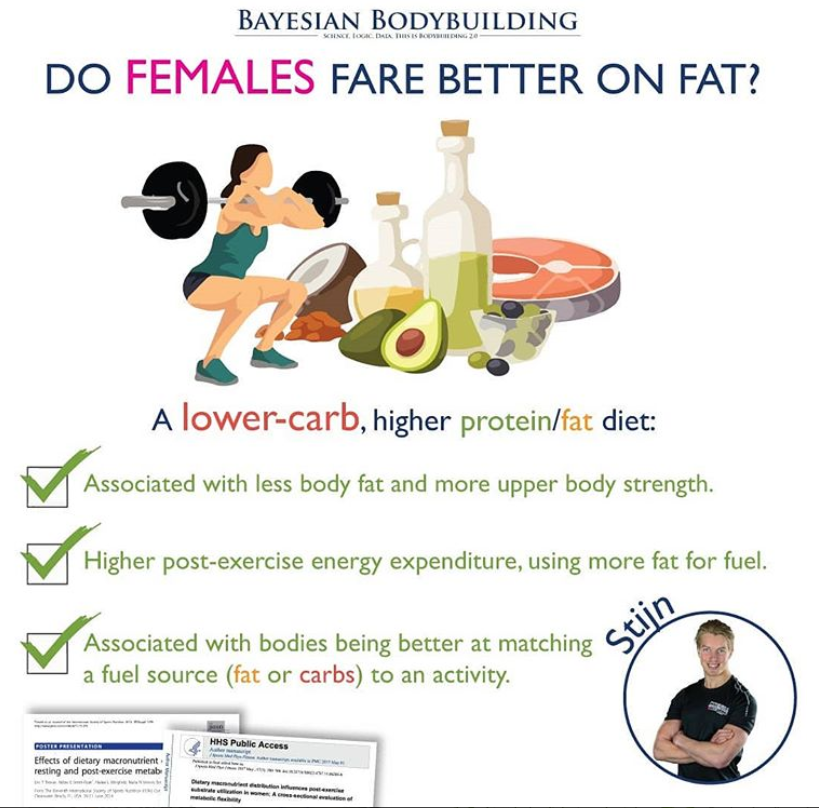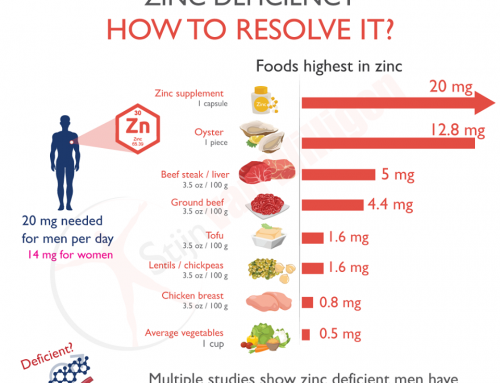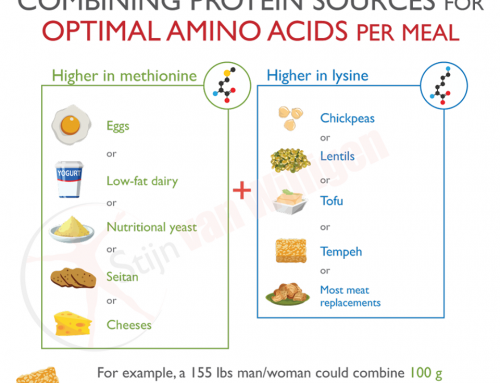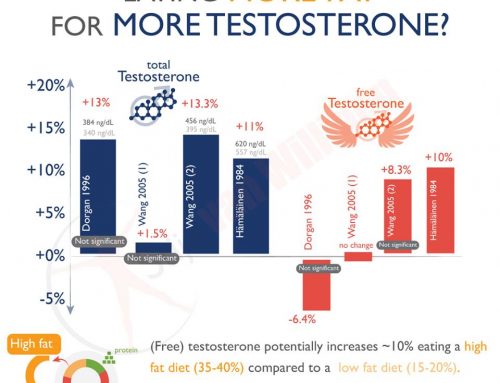Are you a woman and do you have the feeling you fare better on a high-fat, lower carb diet?
Women rely less on carbohydrate as a fuel source [Tarnopolsky 2008]. Therefore it may be better to consume less carbs and more fats to match this.
Research put this to the test: eating more fat (over 35% of energy intake, or 78+ g on a 2000 calorie diet) and less carbohydrates was related to burning more calories after a high-intensity exercise session [Trexler 2014].
However, we have to take this with caution: these women may have compensated by expending less energy later in the day (this wasn’t measured).
But that’s not all. The low-carb participants were also stronger bench pressers and tended to have less body fat.
So eating less carbs and more fat may help in getting leaner by increasing calorie expenditure after an exercise session, and it’s also related to more upper body strength and being leaner.
In line with this, many women anecdotally feel more energized on a lower-carb diet, compared to feeling ‘sluggish’ after a plate of pasta.
More good news for fatfood lovers: Another study by Trexler and colleagues (2017) showed women on a low-carb, high-protein diet had more ‘metabolic flexibility’ [Trexler 2017]. _
This means their bodies were better at matching a fuel type to an activity: burning fat for fuel at rest, and burning more carbohydrates when doing intense exercise.
Take-home messages:
– Women depend more on fat as a fuel source than men. – High-fat, low-carb diets are related to burning more calories after exercise. The preferred fuel at that time is fat, rather than carbohydrates. – This leaves carbohydrates (glycogen) spared for times women need them more: during intensive exercise, such as weight lifting. – Additionally, eating less carbs and more fat is related to more upper body strength and less body fat in general.





Leave A Comment